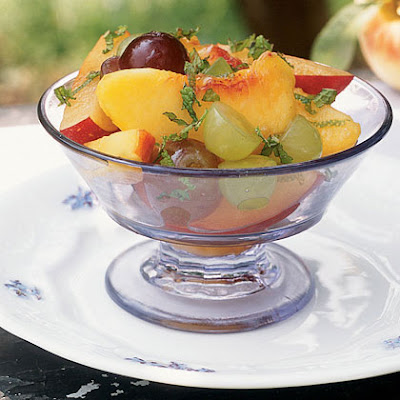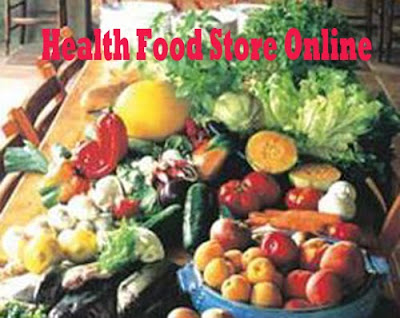Experiments in animals have confirmed what common sense suggests: it's easier to prevent health problems than to reverse them. Still, many health conditions can be improved, and in some cases reversed, through lifestyle interventions. It's important to have realistic expectations and to be kind to oneself. Cultivating a drill sergeant mentality will not improve quality of life, and isn't likely to be sustainable.
Fat Loss: a New Approach
If there's one thing that's consistent in the medical literature, it's that telling people to eat fewer calories does not help them lose weight in the long term. Gary Taubes has written about this at length in his book Good Calories, Bad Calories, and in his upcoming book on body fat. Many people who use this strategy see transient fat loss, followed by fat regain and a feeling of defeat. There's a simple reason for it: the body doesn't want to lose weight. It's extremely difficult to fight the fat mass setpoint, and the body will use every tool it has to maintain its preferred level of fat: hunger, reduced body temperature, higher muscle efficiency (i.e., less energy is expended for the same movement), lethargy, lowered immune function, et cetera.
Therefore, what we need for sustainable fat loss is not starvation; we need a treatment that lowers the fat mass setpoint. There are several criteria that this treatment will have to meet to qualify:
- It must cause fat loss
- It must not involve deliberate calorie restriction
- It must maintain fat loss over a long period of time
- It must not be harmful to overall health
Strategies: Diet Pattern
The most obvious treatment that fits all of my criteria is low-carbohydrate dieting. Overweight people eating low-carbohydrate diets generally lose fat and spontaneously reduce their calorie intake. In fact, in several diet studies, investigators compared an all-you-can-eat low-carbohydrate diet with a calorie-restricted low-fat diet. The low-carbohydrate dieters generally reduced their calorie intake and body fat to a similar or greater degree than the low-fat dieters, despite the fact that they ate all the calories they wanted (1). This suggest that their fat mass setpoint had changed. At this point, I think moderate carbohydrate restriction may be preferable to strict carbohydrate restriction for some people, due to the increasing number of reports I've read of people doing poorly in the long run on extremely low-carbohydrate diets (2).
Another strategy that appears effective is the "paleolithic" diet. In Dr. Staffan Lindeberg's 2007 diet study, overweight volunteers with heart disease lost fat and reduced their calorie intake to a remarkable degree while eating a diet consistent with our hunter-gatherer heritage (3). This result is consistent with another diet trial of the paleolithic diet in diabetics (4). In post hoc analysis, Dr. Lindeberg's group showed that the reduction in weight was apparently independent of changes in carbohydrate intake*. This suggests that the paleolithic diet has health benefits that are independent of carbohydrate intake.
Strategies: Gastrointestinal Health
Since the gastrointestinal (GI) tract is so intimately involved in body fat metabolism and overall health (see the former post), the next strategy is to improve GI health. There are a number of ways to do this, but they all center around four things:
- Don't eat food that encourages the growth of harmful bacteria
- Eat food that encourages the growth of good bacteria
- Don't eat food that impairs gut barrier function
- Eat food that promotes gut barrier health
Oligofructose is similar to inulin, a fiber that occurs naturally in a wide variety of plants. Good sources are jerusalem artichokes, jicama, artichokes, onions, leeks, burdock and chicory root. Certain non-industrial cultures had a high intake of inulin. There are some caveats to inulin, however: inulin and oligofructose can cause gas, and can also exacerbate gastroesophageal reflux disorder (9). So don't eat a big plate of jerusalem artichokes before that important date.
The colon is packed with symbiotic bacteria, and is the site of most intestinal fermentation. The small intestine contains fewer bacteria, but gut barrier function there is critical as well. The small intestine is where the GI doctor will take a biopsy to look for celiac disease. Celiac disease is a degeneration of the small intestinal lining due to an autoimmune reaction caused by gluten (in wheat, barley and rye). This brings us to one of the most important elements of maintaining gut barrier health: avoiding food sensitivities. Gluten and casein (in dairy protein) are the two most common offenders. Gluten sensitivity is widespread and typically undiagnosed (10).
Eating raw fermented foods such as sauerkraut, kimchi, yogurt and half-sour pickles also helps maintain the integrity of the upper GI tract. I doubt these have any effect on the colon, given the huge number of bacteria already present. Other important factors in gut barrier health are keeping the ratio of omega-6 to omega-3 fats in balance, eating nutrient-dense food, and avoiding the questionable chemical additives in processed food. If triglycerides are important for leptin sensitivity, then avoiding sugar and ensuring a regular source of omega-3 should aid weight loss as well.
Strategies: Micronutrients
As I discussed in the last post, micronutrient deficiency probably plays a role in obesity, both in ways that we understand and ways that we (or I) don't. Eating a diet that has a high nutrient density and ensuring a good vitamin D status will help any sustainable fat loss strategy. The easiest way to do this is to eliminate industrially processed foods such as white flour, sugar and seed oils. These constitute more than 50% of calories for the average Westerner.
After that, you can further increase your diet's nutrient density by learning to properly prepare grains and legumes to maximize their nutritional value and digestibility (11, 12; or by avoiding grains and legumes altogether if you wish), selecting organic and/or pasture-raised foods if possible, and eating seafood including seaweed. One of the problems with extremely low-carbohydrate diets is that they may be low in water-soluble micronutrients, although this isn't necessarily the case.
Strategies: Miscellaneous
In general, exercise isn't necessarily helpful for fat loss. However, there is one type of exercise that clearly is: high-intensity intermittent training (HIIT). It's basically a fancy name for sprints. They can be done on a track, on a stationary bicycle, using weight training circuits, or any other way that allows sufficient intensity. The key is to achieve maximal exertion for several brief periods, separated by rest. This type of exercise is not about burning calories through exertion: it's about increasing hormone sensitivity using an intense, brief stressor (hormesis). Even a ridiculously short period of time spent training HIIT each week can result in significant fat loss, despite no change in diet or calorie intake (13).
Anecdotally, many people have had success using intermittent fasting (IF) for fat loss. There's some evidence in the scientific literature that IF and related approaches may be helpful (14). There are different approaches to IF, but a common and effective method is to do two complete 24-hour fasts per week. It's important to note that IF isn't about restricting calories, it's about resetting the fat mass setpoint. After a fast, allow yourself to eat quality food until you're no longer hungry.
Insufficient sleep has been strongly and repeatedly linked to obesity. Whether it's a cause or consequence of obesity I can't say for sure, but in any case it's important for health to sleep until you feel rested. If your sleep quality is poor due to psychological stress, meditating before bedtime may help. I find that meditation has a remarkable effect on my sleep quality. Due to the poor development of oral and nasal structures in industrial nations, many people do not breathe effectively and may suffer from conditions such as sleep apnea that reduce sleep quality. Overweight also contributes to these problems.
I'm sure there are other useful strategies, but that's all I have for now. If you have something to add, please put it in the comments.
* Since reducing carbohydrate intake wasn't part of the intervention, this result is observational.














